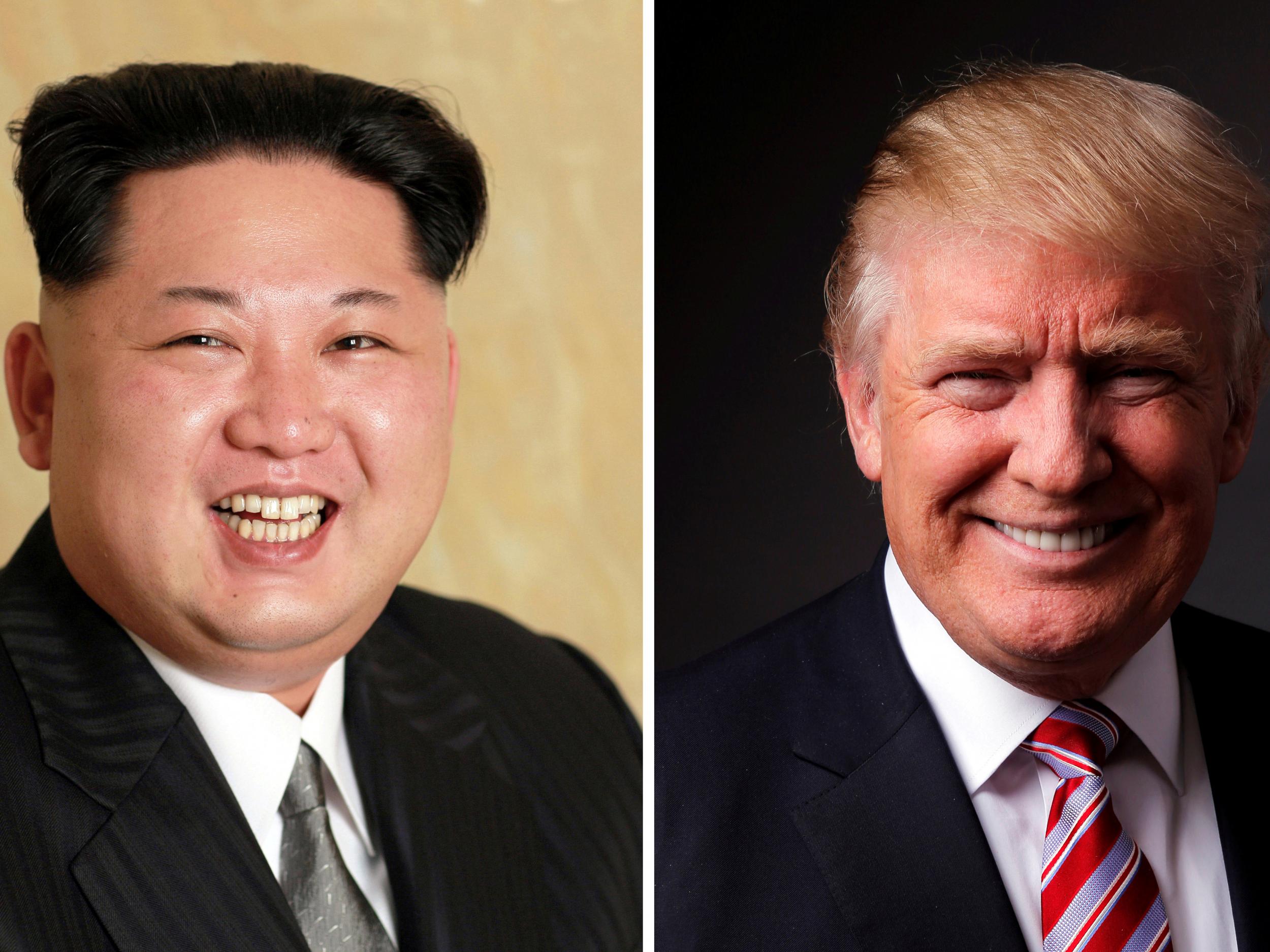North Korea complains Donald Trump is ‘too much like Barack Obama’
Pyongyang has largely refrained from criticising new US President until now

Your support helps us to tell the story
From reproductive rights to climate change to Big Tech, The Independent is on the ground when the story is developing. Whether it's investigating the financials of Elon Musk's pro-Trump PAC or producing our latest documentary, 'The A Word', which shines a light on the American women fighting for reproductive rights, we know how important it is to parse out the facts from the messaging.
At such a critical moment in US history, we need reporters on the ground. Your donation allows us to keep sending journalists to speak to both sides of the story.
The Independent is trusted by Americans across the entire political spectrum. And unlike many other quality news outlets, we choose not to lock Americans out of our reporting and analysis with paywalls. We believe quality journalism should be available to everyone, paid for by those who can afford it.
Your support makes all the difference.North Korea has a criticism of US President Donald Trump he probably wasn't expecting: He's too much like Barack Obama.
North Korea's state media, which regularly vilified Obama in the strongest terms, had been slow to do the same with the Trump administration, possibly so that officials in Pyongyang could figure out what direction Trump will likely take and what new policies he may pursue.
But his top diplomat's recent trip to Asia, which featured some pretty tough talk, appears to have loosened their lips.
In North Korea's first official comments since new Secretary of State Rex Tillerson's swing through the region, a Foreign Ministry spokesman seized on the former oil executive's blunt assessment that Obama's strategy needs to be replaced and US efforts to get North Korea to denuclearise over the past 20 years have been a failure.
The spokesman then slammed Trump for adopting the same policies, particularly regarding tougher economic sanctions, nevertheless.
“Tillerson admitted the failure of the US efforts to denuclearise the DPRK for 20 years and end of Obama's policy of 'strategic patience' during his recent tour,” the North's official Korean Central News Agency said in the dispatch that ran late Monday, quoting the unnamed Foreign Ministry official. “Now Tillerson is repeating what Obama touted... until he left the White House.”
North Korea, officially known as the Democratic People's Republic of Korea or DPRK, hasn't exactly been sitting quietly by as Trump gets settled in.
Just before Tillerson arrived in Tokyo, the North launched several ballistic missiles into the Sea of Japan. While he was still in China, it conducted a test of what it called a “revolutionary” new type of engine for its rockets. On Wednesday, it appeared to have conducted more missile tests from the eastern port city of Wonsan, though they reportedly failed.
To be fair, Trump doesn't really have a North Korea policy yet.
Tillerson stressed repeatedly that a comprehensive policy review is underway and that the purpose of his trip to Asia was to hear out the North's neighbours. How much he was able to do that is questionable. South Korea has only an interim government these days, since its president was just forced out of office because of a scandal. China, North Korea's economic lifeline, has a longstanding dialogue-based agenda that Washington is already familiar with but has never shown much interest in.
On the other hand, Tillerson did raise some eyebrows with a few tough-sounding warnings.
While in Seoul, he said “everything was on the table,” including military intervention or even a pre-emptive strike if tougher sanctions or other diplomatic measures fail to achieve Washington's goals.
Some policy experts in the US say that is really more smoke than fire.
“If you look at Tillerson's full statements, they were much more of a continuation of current policy than has been portrayed in the press, with an emphasis on expanding sanctions,” said David Wright, co-director and senior scientist of the Global Security Program for the Union of Concerned Scientists. “You can try to squeeze North Korea with more sanctions and maybe slow its program, but it's hard to see how to stop it from moving ahead without diplomacy.”
Tillerson's remarks are completely in line with longstanding US policy, including Obama's, but just stated more threateningly. President Bill Clinton, for example, is known to have seriously considered a pre-emptive strike over the nuclear issue in 1994.
Even so, tone is important in diplomacy and Tillerson does seem to have reassured some in Seoul and Tokyo that the United States hasn't forgotten them.
Pyongyang, however, seems to have hit the familiar bravado button.
“The nuclear force of the DPRK is the treasured sword of justice and the most reliable war deterrence to defend the socialist motherland and the life of its people,” the official reportedly said. “If the businessmen-turned-US authorities thought that they would frighten the DPRK, they would soon know that their method would not work.”
Associated Press
Join our commenting forum
Join thought-provoking conversations, follow other Independent readers and see their replies
Comments